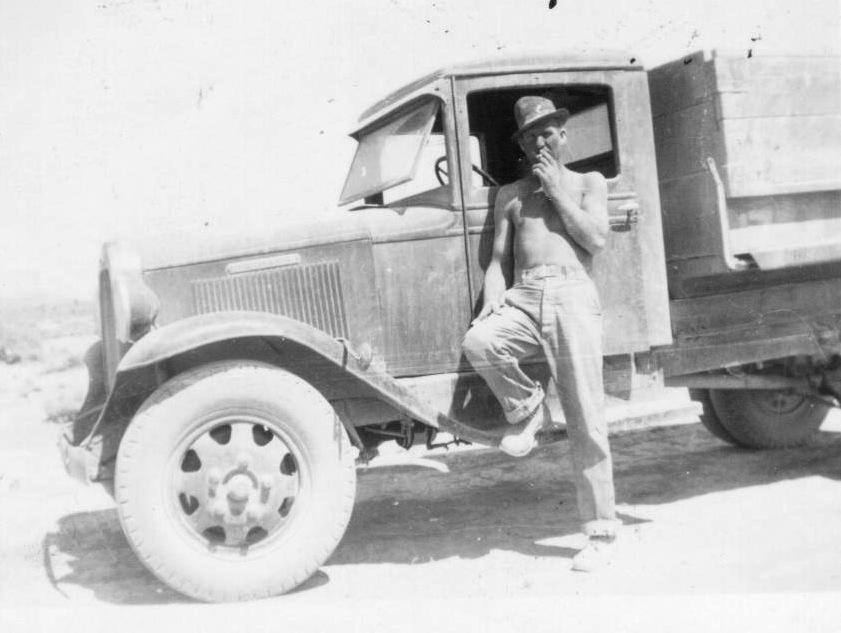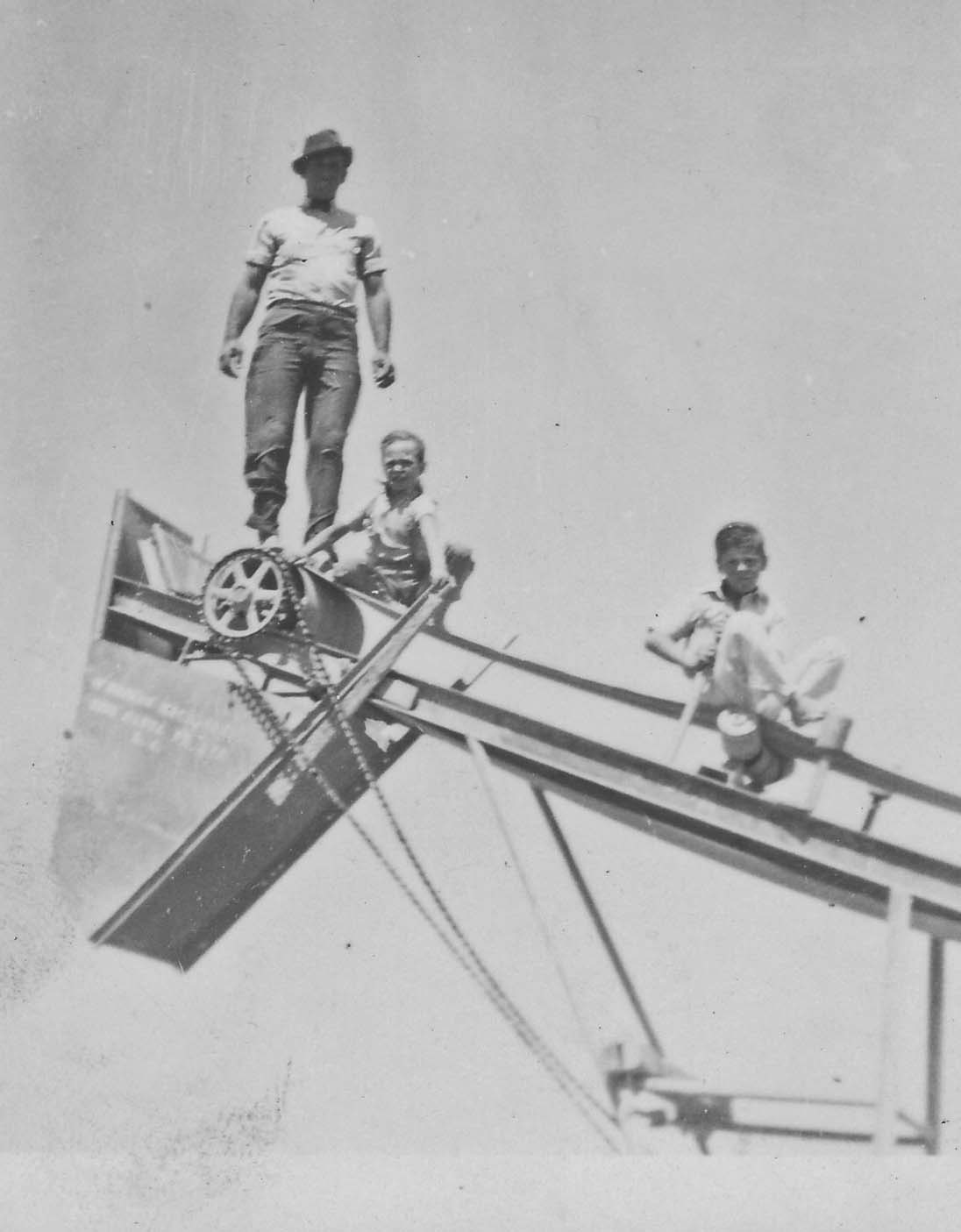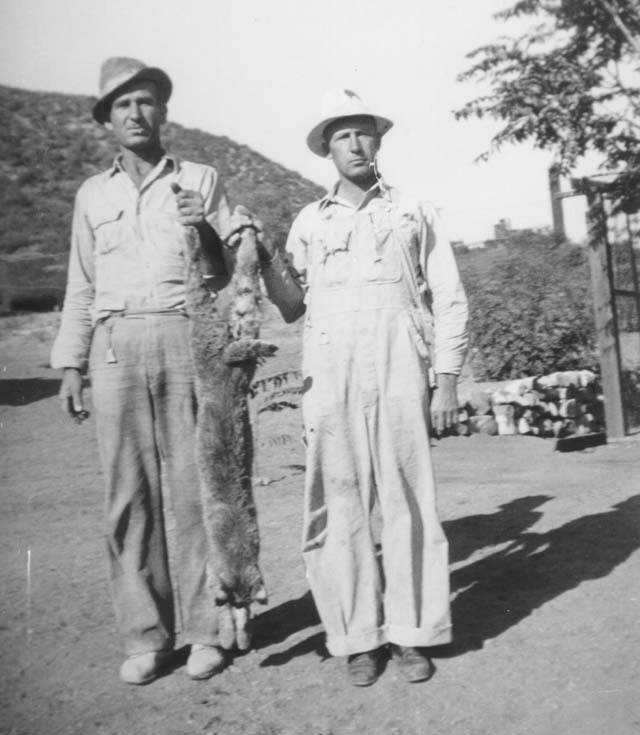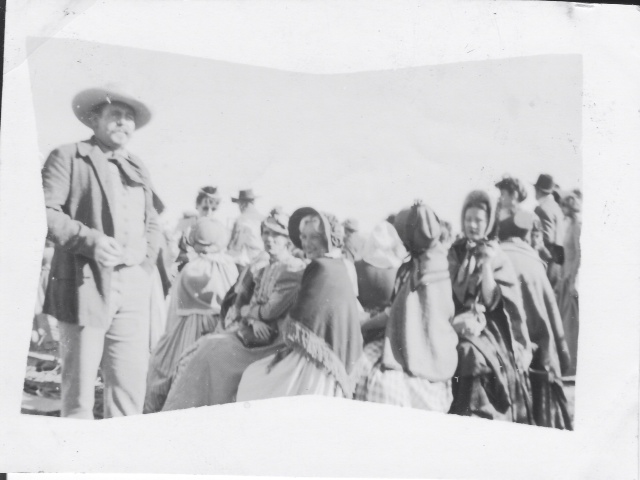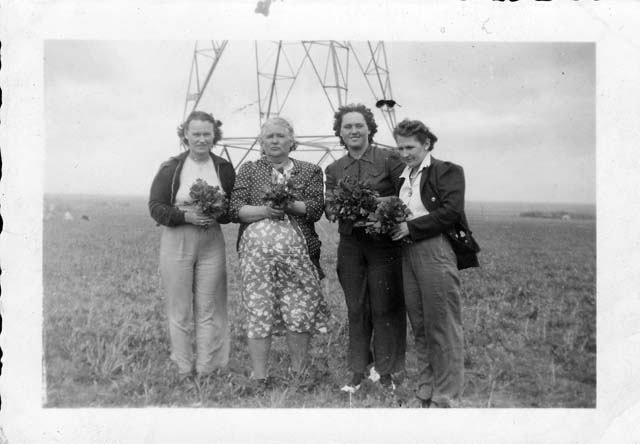Rosamond, Ca. 93560
The Unofficial Website
Local History - The Keeners & Smiths
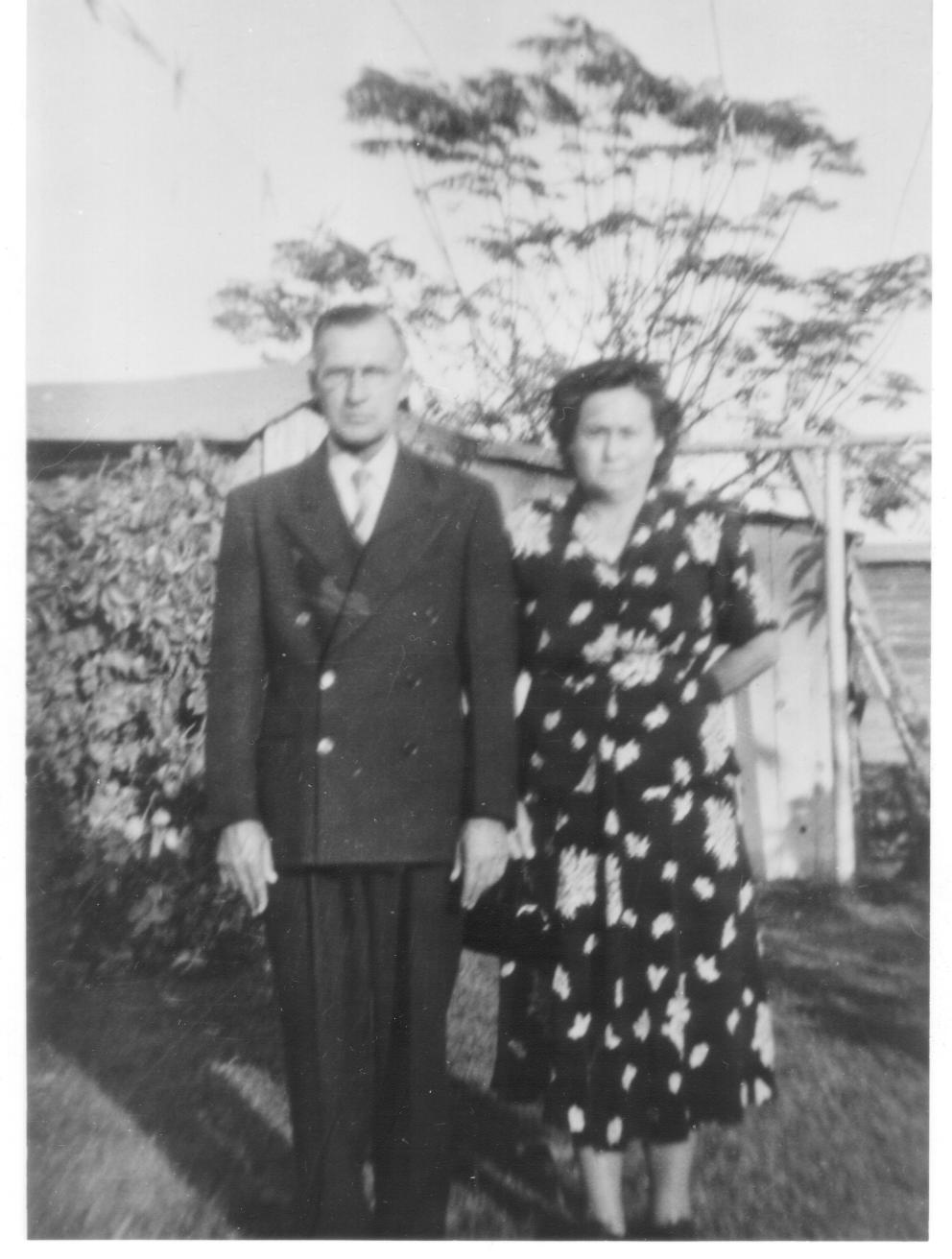 ROSAMOND
in the 1930s & '40s: Rosamond played a vital role in the
migration of the "Okies" in the 1930's. By no means were the Keener's and
Smith's the only migrants that used Rosamond as the Gateway to California.
Rosamond had its own Migrant Camp. Other than my own very clear memory and
photos, my cousin Mina Smith, second child of my mother’s brother Gordon Smith,
remembered in detail things I would not have been able write. I lost contact
with Mina years ago. 1935....Gordon (born 7-25-1896) and Ora (born 7-1-1905)
Smith and five children left Konawa, Oklahoma for California. Gordon built a
house on the bed of a 1928 Chevrolet truck for the trip. The landed in Rosamond,
California.
ROSAMOND
in the 1930s & '40s: Rosamond played a vital role in the
migration of the "Okies" in the 1930's. By no means were the Keener's and
Smith's the only migrants that used Rosamond as the Gateway to California.
Rosamond had its own Migrant Camp. Other than my own very clear memory and
photos, my cousin Mina Smith, second child of my mother’s brother Gordon Smith,
remembered in detail things I would not have been able write. I lost contact
with Mina years ago. 1935....Gordon (born 7-25-1896) and Ora (born 7-1-1905)
Smith and five children left Konawa, Oklahoma for California. Gordon built a
house on the bed of a 1928 Chevrolet truck for the trip. The landed in Rosamond,
California.
My mother told me aunt Ora wrote several times asking us to come to California. My dad worked for Gulf Oil in Oklahoma and was not interested, that is until our house burned to the ground. Uncle Gordon worked for Richland Bentonite Co. and had a job waiting for dad. So after donations of bedding and clothing etc. my parents Henry Aaron (born 5-28-1909), wife Johnnie Bonnie Keener (born 1-26-1907) and four boys, sometime in 1938, headed the model A Ford towards Rosamond, California .
Our first (house?) at Rosamond was a little shack the size of a boxcar that sat on the Rosamond Dry Lake close to the dirt loader. No utilities, just a kerosene lamp and kerosene cook stove. We got our water and bathed at a nearby artesian well. It was a deep hole about 30 feet wide with long green grass around it with a pipe sticking up in the center and water flowing all the time. We boys learned to swim there. The wind blew a large body of water about a couple of inches deep and a few hundred yards wide and long back and forth as the wind changed directions. It moved slow, we could walk ahead of it or run into it and slide on the slick clay. As the water moved on, the surface dried and curled up into small platelets of clay silt. (Ruff on bare feet.) The Bentonite product was harvested with a machine that scooped up the dried platelets and trucked to the processing plant. Speaking of wind. It could be very strong at times. I remember one night, my folks thought it was going to tumble across the dry lake like a cardboard box. We all got up and spent the night in the car.
We moved out of that shack as soon as we could into a real house on the edge of the dry lake. We went to school. I think I was in the third grade. The desert and the dry lake were a huge adventurous playground for my brothers and I.
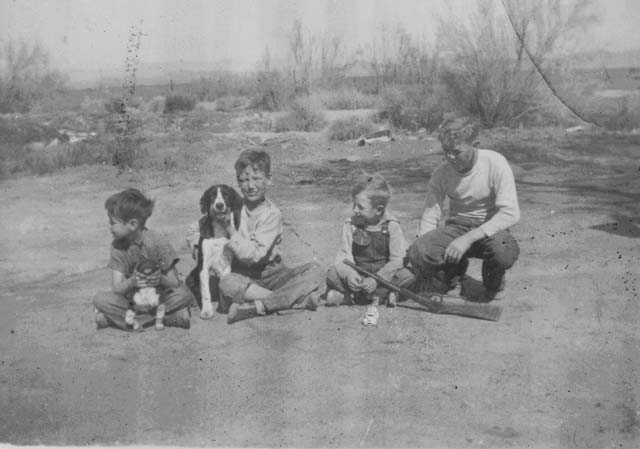 The Keener Kids: Clyne, David, Henry Aron Jr., Charles and Ishmael Worth Keener |
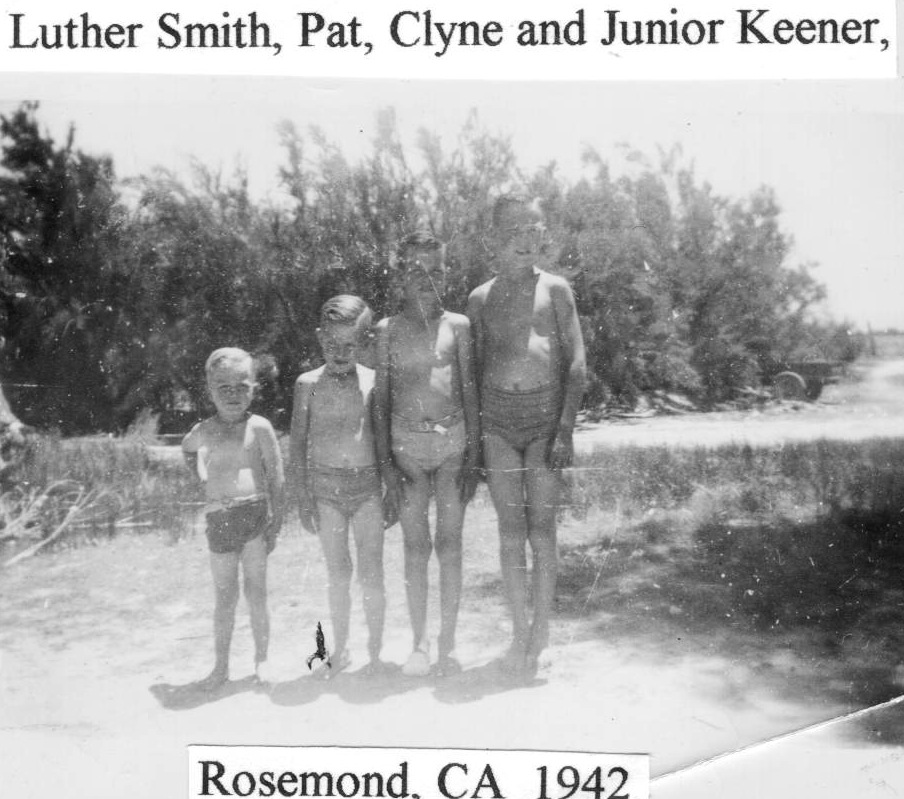 Luther joined in with us...no fast-food, TV or vieo games with plenty of outdoor activities gathers on fat! |
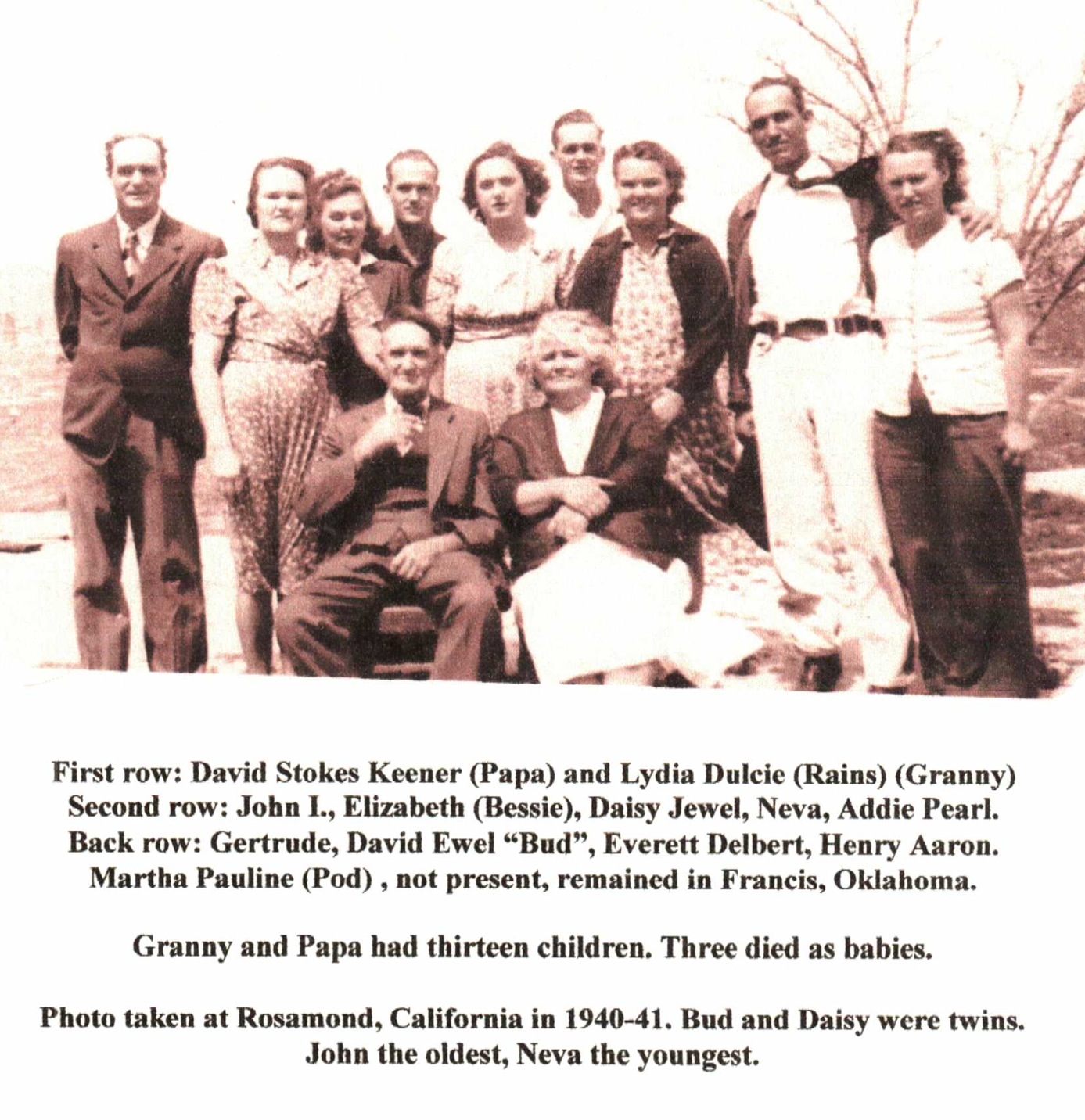 |
Others followed. Gordon and my mother's youngest brother Troy Paul Richard (Brooks) Smith. (born 11-6-1911), wife Verda (born 10-31-1919) and son Luther Smith.
The Keener children of David Stokes (Papa) born 9-9-1879 and Lydia Dulcie (Granny) born 11-2-1881 had a habit of sticking together. Here they came, except Martha Pauline (Pod) Keener Jones (born 2-27-1904. Her husband Clemency Clay (Clem) Jones had a good job with the rail road and was not moving. Papa did not have a car so he traded 4 hogs for his brother-in-law's old truck. They traveled in a caravan. The single children went with Granny and Papa. The rest drove their own cars. Papa said he had 100 flats before he hit California in that old truck. In those days, we patched the inner tubes and put boots inside the tire to cover the blown out hole in the tire. Uncle Gordon lived in a big house. A block or so behind the row of business on the main road. He was the boss, you know.
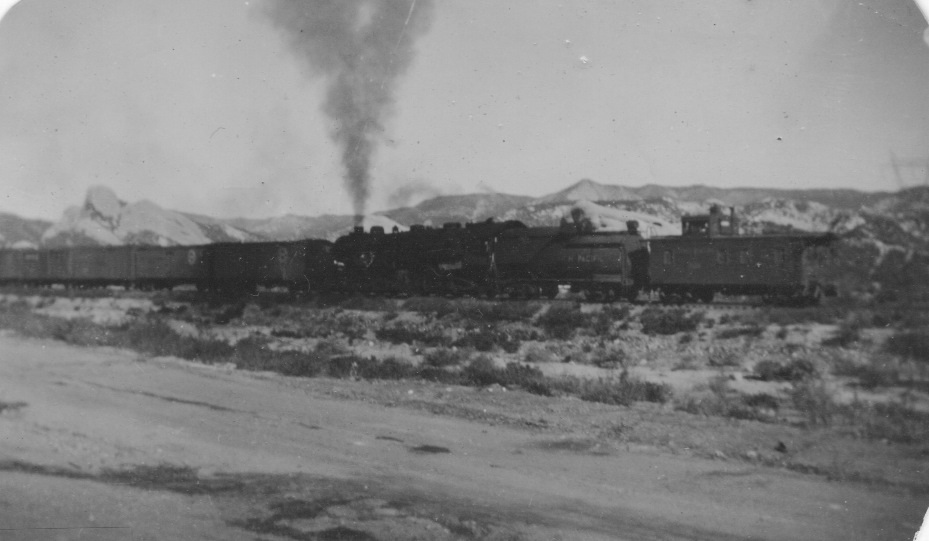 The
mill that processed the soil from the dry lake was at CAJON Pass just beyond the
Mormon Rocks next to the road and railroad tracks. The bentonite was bagged
there. It was owned by the Richland Company. Uncle Gordon sent dad and others to
work there. We lived in the main house just below the plant. We (kids) enjoyed
the long trains that pass daily, exchanging waves with the Engineers. Huge 16
driver steam engines puffing away. The photo at left was taken there.
The
mill that processed the soil from the dry lake was at CAJON Pass just beyond the
Mormon Rocks next to the road and railroad tracks. The bentonite was bagged
there. It was owned by the Richland Company. Uncle Gordon sent dad and others to
work there. We lived in the main house just below the plant. We (kids) enjoyed
the long trains that pass daily, exchanging waves with the Engineers. Huge 16
driver steam engines puffing away. The photo at left was taken there.
Going to school was a drag. Long walk to the bus stop. Long trip on the school bus. Mean bus driver. One boy was acting up, the driver called him to the front. When the boy came forward, the driver hit him, knocking the boy down the steps against the door. The boy laid there until it was his stop to get out. We told our dad about it. He said if the man touched us to let him know. It would be his last. The outhouse was up a path through heavy bushes at the back of the house. The family routine was a trip one at a time before breakfast. Charles Pat, age five was usually last.
One day Dad just happened to look out the kitchen window and see a large bobcat sitting behind a bush next to the path. Dad quickly grabbed the 22 rifle, called Pat back and got off one shot wounding the bobcat. Dad and Uncle Gordon hunted it down and killed it. I guess the cat wasn't interested in us big folks. It was just the right size for breakfast.
(My Dad) Henry Keener was an honest hardworking man, but he couldn't stay put for very long. These stories I am telling are leapfrogged over gaps of loading the car and spending some time in Oklahoma or elsewhere. Us kids never knew when itched for the road. I learned to only live in the past and present. The future was blank in my mind. Back to Rosamond. We lived in a house, close to the dry lake and near a golf course. We picked up ball and sold them. Dad worked in the Burton Gold Mine at some time. As others in the family did. My dad had a short temper as my next story will reveal.
DAD BEATING THE MODEL (A) FORD: We lived on the edge of the Rosamond Dry Lake, Rosamond, California. Dad worked at the Burton Gold Mine. He must have been working the evening shift because it was in the afternoon when he went out to the Model (A) Ford to leave for work. We heard the familiar grinding of the starter then silence. A moment later more grinding of the starter. By this time we are all peeking out the window. Dad is going to be late for work if it doesn’t start. He steps on the starter and holds it down. It grinds but slowly growls to a stop. The battery was dead.
At a time like this, nobody would dare go outside. Dad was gritting his teeth and beginning to cuss in a low voice but the anger was building up. He raised the seat and removed the crank then adjusts the spark and gas levers on the steering column. After cranking the engine by hand we could almost see steam rising out from under his hat. All of a sudden the swearing got louder and faster. He jerked the crank out and with both hands brings it down across the hood of the car. He made a complete circle around the car while beating it with the crank.
He stopped and stood still as if a light came on in his head. He went over and broke a small limb from a tree, walked back and removed the gas cap, shoved the stick to the bottom and pulled it out dry. Dad slowly screwed the gas cap back on and as he turned his head to see if anyone was watching, we all ducked our heads. When we dared look again, he was walking down the road. Clyne David Keener
The last we lived in Rosamond was during ww2. By that time we were pulling a small trailer house (as we called it) all over California it seemed. Rosamond was just a wide place in the road. I take that back. It was just on one side of the road. The railroad was on the other side. All the businesses were in a single row and not many. Rosamond dry lake still had not been taken over by the military, but the army was all over the place being trained. We lived in a migrant camp just behind that row of stores I mentioned. Trailers and tents. The war was taking the able bodied men, so boys 12 and over were filling in the gap. I was 12 at the time and was setting pins at the Bowling Alley. My dad put food on the table, but if we wanted anything extra. We worked for it. I joined the Boy Scouts and I needed a uniform and camping equipment. Our meetings were at the school. I remember my initiation. They pulled my pants off and sent them up the flag pole. I was not wearing any under clothes. Very embarrassing. Streaking was not in style at that time. Bowling or hitting the bars was about it for the soldiers’ pastime. One of the soldiers we called Sarge loved to come back and help us kids set pins. One evening I was almost killed by a drunken bowler. He threw his first ball. I jumped into the pit and started picking the pins up. Instead of waiting for his ball to return, he picked up another one and threw it. I looked up as it was about 3 feet away and coming fast. It hit me in the lower chest and stomach. I fell gasping for breath. The Sarge was in the next pit and saw what happened. The people up front also saw it. He jumped over and picked me up, climbed out and walked over to the side walkway then walked across the lanes straight at the man who threw the ball. He laid me on a bench and people started working on me to start breathing. The Sarge scared the pee out of the drunk but let him be, and took my place the rest of the evening. I was treated like royalty and could have anything I wanted to eat or drink that evening.
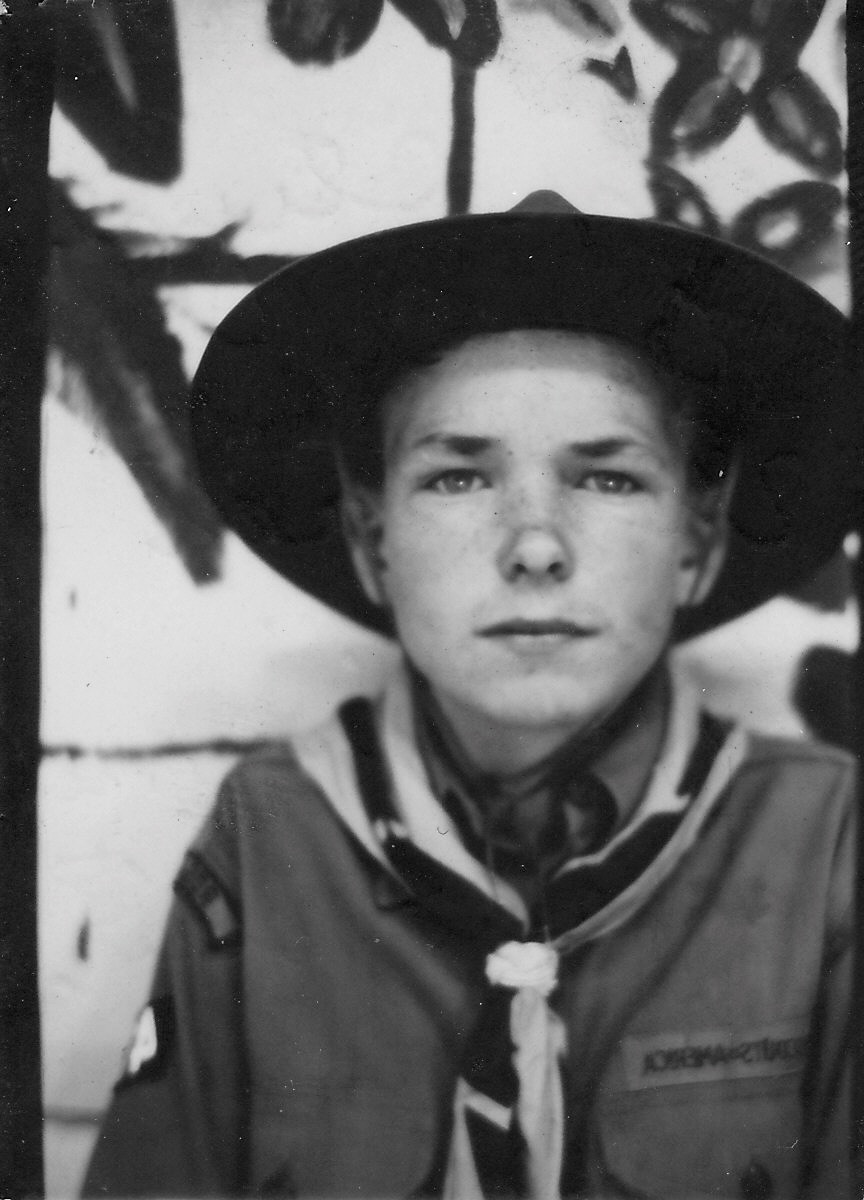
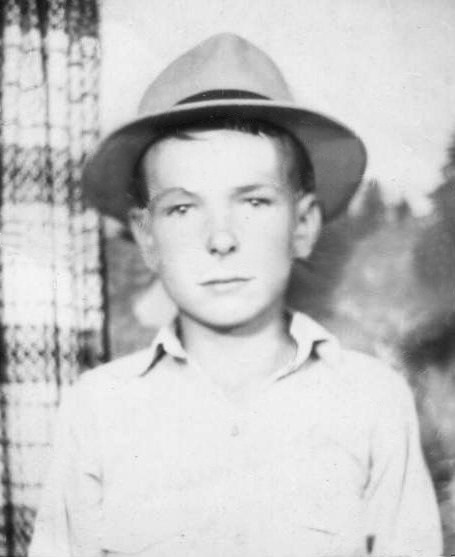 One thing I forgot about setting pins. One of the boys
learned how to get tips, we all started doing it. He would write "Tip Me Don't
Gip Me" on a small piece of paper and stuff it in the ball's thumb hole. Sure
enough, a coin would come rolling down the lane.
One thing I forgot about setting pins. One of the boys
learned how to get tips, we all started doing it. He would write "Tip Me Don't
Gip Me" on a small piece of paper and stuff it in the ball's thumb hole. Sure
enough, a coin would come rolling down the lane.
I learned a way to make more money, easier and quicker. I went behind the grocery store and picked up a couple of discarded pine crates. Made myself a shoeshine box. I would wait for the bar patrons to sit long enough to get snot-faced drunk, then I would go along the stools and say, Shine Mister? With a cigarette in hand, he would blow smoke in my face and motion OK! then put a foot out. I would not ask a price but hold my hand out. I would usually get all the change that the bar tender left after each drink.
A common thread ran through every Migrant Camp, Rosamond was no exception. BOREDOM. On long summer days especially. Someone would suggest a good fight. This has got to be a carryover from the Roman Gladiator days. (My dad told his four boys, "If you start a fight, I will whip you. If someone starts a fight with you and you don't fight back, I will whip you.”) Another common thread was family honor. You did not want to be branded a coward. Sometimes it would be men. Sometimes it was boys. I was in the trailer when someone knocked on the door. The man told mom that Clyne had been challenged to a fight. Mom knew the rules and went with me to make sure it was fare. Another boy my age (12) got the same message. People had their chairs set up in a large circle and waiting. Some were standing. When I saw who the other boy was, it troubled me. He was my friend; we went to school and played together. We had no choice but to fight bare fists without a break until one was down and stayed down. I thought the fight would never end. We were too evenly matched. We both fought our hearts out and went down together. We were still friends. It was nothing personal..
Those were tough times and tough people, but also hardworking, honest and trustworthy. Nowadays a fight brings ten police cars and a Swat Team.
A note to anyone reading this: The migrant camp at Weed Patch, California was a government ran camp. The one in "Grapes of Wrath". They had nurses , schools etc. My folks and most others camped in privately owned camps. Wanted no part of the government or handouts.
The school in my mind was North West a few blocks from the main part of town. A windmill and tank house were at the west end and a few feet behind the classroom, the playground west of the school. Mrs. Pillcher ? As my teacher. One day during a heavy wind, we heard a loud crash. We all rushed to the back windows. The propeller of the windmill came off and landed on the playground.
Lots of memories. I miss the steam trains. The engines could talk. As I lay awake at night, I listened as the engine strained under the heavy load. The hissing, chugging and clanking was saying, I think I can, I think I can, I think I can. Then she would pick up speed. now the heavy chugging would soften into the increased hissing and clanking , now she was saying, I knew I could, I knew I could, I knew I could.
Well readers, my brain is on empty for anything more that would be interesting. I hope this has been of some interest to you. If you have any questions, I will do my best to answer them. Clyne
Above material provided by Clyne Keeler, Rosamond, CA 2013
